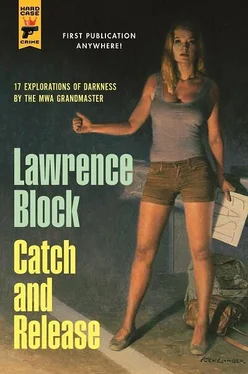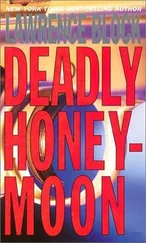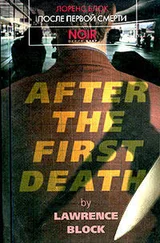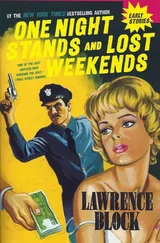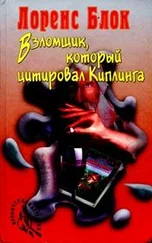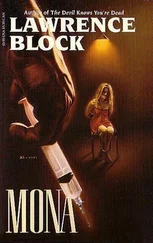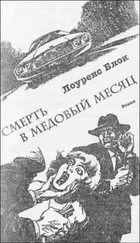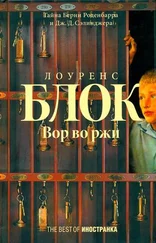Never happened. Lew and I pretty much lost track of each other, I got transferred to the Hollywood division, but I heard about it when he killed himself. That’s not what they called it, they said he was cleaning his gun and had an accident, but that’s what they used to say at the time. Funny how so many cops’d have a few drinks and decide they better give their gun a good cleaning.
That must have been around 1955. And it wasn’t more than one or two years later that the husband died in prison. It seems to me somebody stuck a knife in him, but I may not be remembering that right. Maybe it was natural causes.
Then again, in a state joint getting a knife stuck in you is pretty much a natural cause.
Charles, is there anything more you want to say?
All these years I kept this strictly to myself. There were stretches when it was on my mind a lot, and other times I’d go months or years without thinking about it at all.
But I never said a word to anybody.
And maybe I should leave it that way.
Same token, all of these people are gone. I must be the only man alive even remembers any of them. Why do I have to keep their secret?
Thing is, I don’t even know what I know. Not for certain.
Uh, Charles—
No, this is what, oral history? What you call it?
Only way to say it is to say it.
When I’m in the living room, what I hear is a snapping sound. Like a twig breaking. It’s faint, it’s coming from the back of the house, and if I’m outside where I’m supposed to be I most likely don’t hear it at all.
And after the twig snaps, there’s like a little sigh. Like the air going out of something.
“I think she’s gone.” That’s what he said, and as soon as I heard the words I knew she was gone, and I realized I knew it from the moment I heard the twig snap.
The twig?
Easy to call it that, but I don’t remember seeing any twigs in that bedroom.
I didn’t say anything, and Lew didn’t say anything, and then one night he did. Slow night, quiet night, and we’re in the car. I remember he was driving that night.
Out of the blue he says, “There’s people in this world who never have a chance.”
I knew he was talking about her.
I just sat there, and a minute or two later he says, “Say she pulls through. So he kills her next time, or the time after that. Or the twentieth time after that. You call that a life, Charlie?”
“No.”
We caught a red light. More often than not what we’d do is slow down enough to see there was no cross traffic and then coast on through it, but this time he braked to a stop and waited for the light to change.
And while he was waiting he took his hands off the wheel and sat there looking at ’em.
The light went to green and we moved on. Two, three blocks along he said, “This way she’s in a better place. And he’s where he belongs. You don’t know what I’m talking about, do you, Charlie?”
“No,” I said. “No idea.”
It wasn’t that much longer before they moved me to the Hollywood division, which was an interesting place to be in those days. Not that you didn’t get domestics there, too, and every other damn thing, but the people were a little different. The same in many ways, but a little different.
Where was I?
Uh, the Hollywood division.
No, before that. Never mind, I remember. It was maybe another month I was with Lew, before the move to Hollywood. And he never brought up the subject again, and I for sure never said anything, but there was one thing he kept doing, and it made me glad when they transferred me. I’d have been glad anyway, because the move amounted to a promotion, but it gave me a particular reason to be glad to get out of that particular radio car.
What he would do, he’d go silent and look at his hands. And I couldn’t see him do that without picturing those hands taking hold of that woman’s head and breaking her neck.
I guess he saw the same thing.
And is that why he sat up late one night, all by himself, and gave his gun a good cleaning? Maybe yes, maybe no. The things he supposedly did during the Zoot Suit riots, far as I know he had no trouble living with them, or the other three Mexicans he killed, and he might have been the same way with this.
Because, you know, it was the only way that woman was gonna get out of it, the mess she was in. Look at it that way and he was doing the humane thing. And it was the perfect opportunity, because her husband already thought she was dead and that he’d killed her. So this way she’s out of it, and this way he goes away for it, and that’s the end of it.
So would it make Lew kill himself a few years down the line? My guess is it wouldn’t. My guess is he was feeling low one night, and he took a long look at his life, not what he’d done but what he had to look forward to.
Stuck the gun in his mouth just to see how it felt.
Here’s something else I never told anybody. I been that far myself. I remember the taste of the metal. I remember — now I haven’t thought of this in ages, but I remember thinking I had to be careful not to chip a tooth. One trigger pull away from the next world and I’m worried about a chipped tooth.
I never broke any woman’s neck, or shot any Mexicans, or did any big things that weighed all that heavy on my mind. But looking at it one way, Lew pulled the trigger and I didn’t, and on that score that’s all the difference there was between us.
Of course that don’t mean I won’t go home now and do it. I’ve still got a gun. I guess I can clean it any time I have a mind to.
The doctor shuffled the pack of playing cards seven times, then offered them to the soldier, who sat to his right. The soldier cut them, and the doctor picked up the deck and dealt two cards down and one up to each of the players — the policeman, the priest, the soldier, and himself.
The game was poker, seven-card stud, and the priest, who was high on the board with a queen, opened the betting for a dollar, tossing in a chip to keep the doctor’s ante comfortable. The soldier called, as did the doctor and the policeman.
Over by the fireplace, the room’s other occupant, an elderly gentleman, dozed in an armchair.
The doctor gave each player a second up-card. The policeman caught a king, the priest a nine in the same suit with his queen, the soldier a jack to go with his ten. The doctor, who’d had a five to start with, caught another five for a pair. That made him high on the board, but he took a look at his hole cards, frowned, and checked his hand. The policeman checked as well, and the priest gave his Roman collar a tug and bet two dollars.
The soldier said, “Two dollars? It’s a dollar limit until a pair shows, isn’t it?”
“Doctor has a pair,” the priest pointed out.
“So he does,” the soldier agreed, and flicked a speck of dust off the sleeve of his uniform. “Of course he does, he was high with his fives. Still, it’s one of the anomalies of the game, isn’t it? Priest gets to bet more, not because his own hand just got stronger, but because his opponent’s did.
“What are you so proud of, Priest? Queens and nines? Four hearts?”
“I hope I’m not too proud,” the priest said. “Pride’s a sin, after all.”
“Well, I’m proud enough to call you,” the soldier said, as did the doctor and the policeman. The doctor dealt another round, and now the policeman was high with a pair of kings. He too was in uniform, and wordlessly he tossed a pair of chips into the center of the table.
The priest had caught a third heart, the seven. He thought for a long moment before tossing four chips into the pot. “Raise,” he said softly.
Читать дальше
